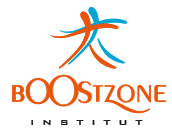Everyone starts today to use Augmented Reality (AR) in a way or another and it is probably one of the most important game changer for our daily life within the next few years. We will use its power for tourism, recognizing a monument and getting information on it; finding our way (the closest tube station or the closest Italian restaurant); for looking at the stars as an amateur astrologist with just an iPhone; etc.
But some of its implications are also on the professional side, helping us soon to identify members in a large meeting via face recognition, helping us to repair our broken photocopier via maintenance guidance thanks to our augmented reality glasses looking at the machine, etc.
AR is augmenting our capabilities.
Many other tools are augmenting our intelligence of what happens around us in the real and the professional sides of our lives. The access to data is becoming ubiquitous and increasingly accurate, allowing us to get the relevant data for building our opinion within minutes. We can now check market figures, events, people, on the fly and be de facto much better informed. With geolocalization we can figure out where our friends, tomorrow our colleagues, are located. With Social Networks we can access a world of best practices, advices, ideas.
This augmentation is both great, we indeed have an “augmented intelligence”, but also partially scaring. Are we sure we have the right competencies to use all this power? Can we avoid being overwhelmed? The infobesity is close. The threat for our skills to become obsolete is here. This is an issue in particular for executives and all those who have to manage other people.
The “Augmented Executive” will have to be on top of it and if possible not destroyed by it… A remarkable challenge having at least two dimensions. First, how will he manage his own Augmented intelligence? Second, how will he be able to manage his “Augmented Employees”? The answers are probably linked: The augmented manager will be a manager who is able to leverage the augmented intelligence of his employees, accept that they “know” (in terms of access to knowledge) more than he can possibly know himself, consider his role more as a coach to them (including on information infobesity management), become a real expert in superior interpretation of data and in contextualizing them according to the business objectives, become an expert in managing this new horizontal hierarchy: the one of his employees connections.
This change in the manager-managed roles will require new recruitment systems (how to select the right collaborators in this connected world?), new promotion systems (who should be selected to the next managerial level?), new evaluation system (Is this employee managing his network well or is he losing time?), new people development systems (How to help both employees and managers to be effective and efficient in this new context?), new separation systems (When one employee leaves, he takes with him his network’s potential, how to make sure this is replaceable?), etc.
Definitely the Augmented Executives have a lot of work to do. It is logical that they are stressed out. Surprisingly however, the stress does not come from an overabundance of tasks and information (i.e. a lack of “time” as they all complain about), but rather from a potential lack of the new “Augmented skills”. The real question is then how to acquire these new skills, how to develop oneself and one’s own teams in order to create a real competitive advantage out of “Augmented Employees”. Part of the Boostzone Institute 2011/2012 program will be devoted to this challenge, keep posted!



Bravo Dominique ! I think you have hit the real challenge on the nail. Coping with infobesity while developping a meaningful environment for people to thrive is the key to success ..